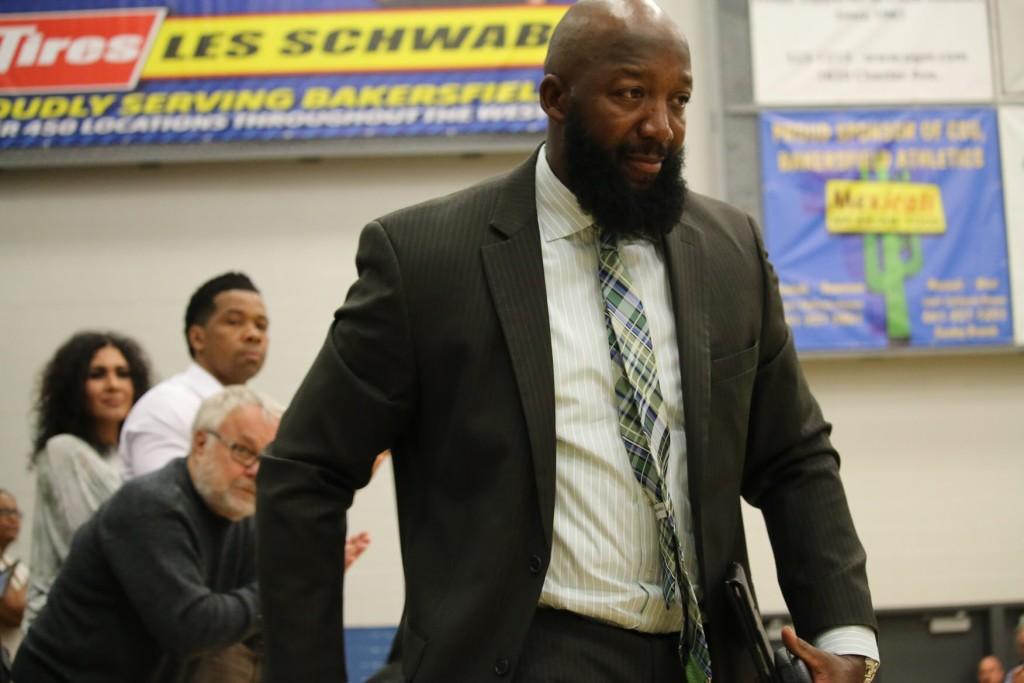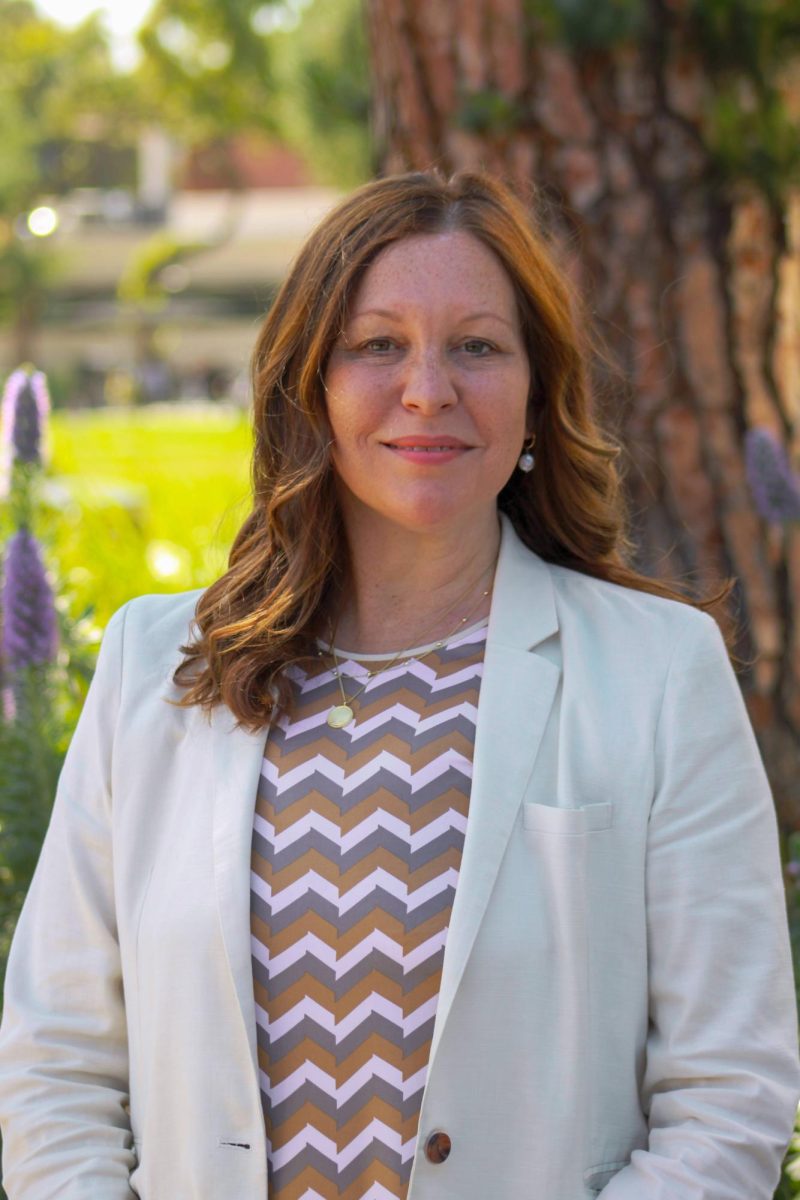Assistant Opinions Editor
The stadium seats of the Icardo Center were filled early with a diverse audience, waiting in anticipation to hear the words of compassion and peace.
Tracy Martin, father of Trayvon Martin, spoke at CSU Bakersfield for its 30th Annual Charles W. Kegley Memorial Lecture entitled “We are All Trayvon” on Tuesday, April 12.
“This thing has become bigger than Trayvon… this has become all our children,” said Tracy Martin.
Trayvon Martin was the unarmed 17-year-old whose murder shook the nation. His assailant said Trayvon, who was wearing a hooded sweatshirt, was exhibiting suspicious behavior in February 2012. Since the incident, his father has been committed to spreading the message of community-building across the nation. He spoke about personal experiences, fatherly anecdotes and insights into controversial subjects plaguing the human experience, such as gun ownership, poverty, and the importance of family.
He said the lack of communication between children and their parents is threatening family values. The “breakdown of communication” also extends to the relationship between citizens and law enforcement. He said trust and understanding needs to be built between the two.
“One bad apple doesn’t ruin the whole bunch. That goes for the police department and the community,” said Martin.
However, he said that does not excuse the negative behavior and stereotyping, and there needs to be mutual respect from both sides.
“[Not] every African-American male in North America is suspicious,” said Martin.
The fearful prejudging that is directed towards African-American youth may result in irreversible consequences. Martin said prejudging others is as guilty as anyone committing the harshest crimes.
“That was the root cause of Trayvon losing his life,” said Martin.
He said the youth should to take personal responsibility and to think before reacting on impulse. Listening, discipline, and showing respect could save one’s life.
“One thing we have to start telling them is trouble is as easy as 1,2,3 to get into and H-E-L-L to get out of,” said Martin.
His motivation is to get young African-Americans out of the “incarceration society” that is hurting the community.
“We are committing genocide,” said Martin.
He said people should march for all injustices, no matter for race. He refers to the Black Lives Matter movement, and said all lives should matter. But first, he said, black lives need to start mattering to black lives.
“We become immune to death. How do you, as a human being, become immune to death?” asked Martin.
He concluded the lecture with emphasizing the importance of collaboration between everyone.
“White America can’t survive without Black America, we need each other. Latin America can’t survive without either of us. We need each other,” said Martin.
He said he feels blessed that he can reach so many and will continue to be “the voice of the voiceless.”
Martin also said he wants his son to be remembeed as the African-American boy who galvanized the country.
“His death has brought the country together,” said Martin.
The lecture received a standing ovation. Martin’s message touched many CSUB students who attended the event.
“I was inspired, especially as a young black man and especially the way he talked about his kids…it was defiantly touching,” said senior and men’s basketball player Kevin Mays, 23. “I learned a lot… like bringing parents and the youth on the same page, it’s definitely good with helping us move forward.”
Student Eliza Dyer, 22, said she was glad Martin came to Bakersfield to speak. She is President of the Sociology Club on campus and does research on police brutality in the city. She hopes the message resonates with others and it doesn’t end when people leave the event that night.
“I hope we continue the conversation and keep it going with community members being a part of social justice,” said Dyer.
The event also attracted others outside of CSUB.
Justin Kindred, 27, is a local worker and part owner of Jus’N Tyme Barbershop. He heard of the lecture and was interested in hearing what Martin would have to say.
He said he had no expectations, but had mixed feelings on Martin’s view of the Black Lives Matter movement. During the question and answer portion at the end of the lecture, Kindred approached the microphone and addressed his concerns.
“We both know that when we say Black Lives Matter…we do mean all lives,” said Kindred.
Martin said he believes that all lives matter because he would like to see a sustainable movement, and he does not see that happening if the movement focuses on one race or group of people.
Kindred was not disappointed by his response, and understood Martin’s perspective.
However, Kindred said he still believes Black Lives Matter means standing up for everyone who has not had someone stand-up for them before.
“Black Lives Matter means to me uplifting one another,” said Kindred.
CSUB President Horace Mitchell found the involvement of the audience, the questions and the community coming together encouraging.
“I’m glad he’s here…he does bring a set of ideas that are galvanizing,” said Mitchell.
He also anticipated the enthusiasm and large turnout from the community.
“We knew — by the way — the Doré theater wouldn’t carry them,” said Mitchell.









